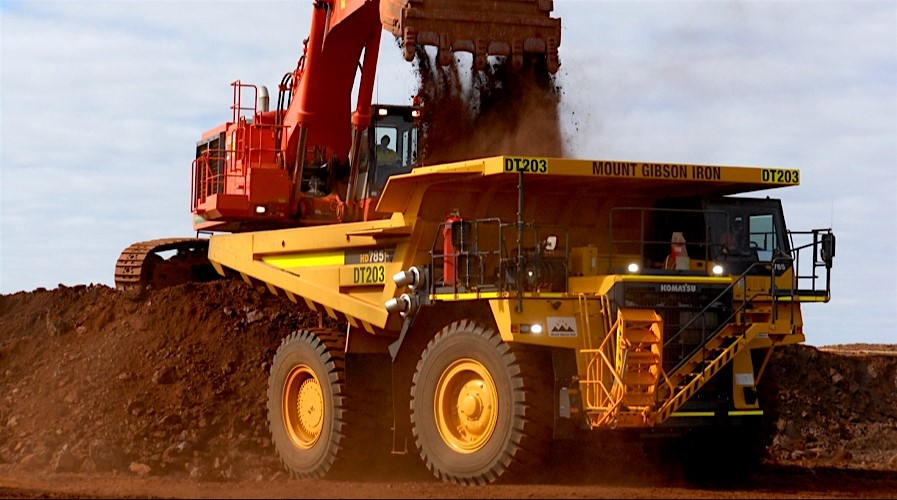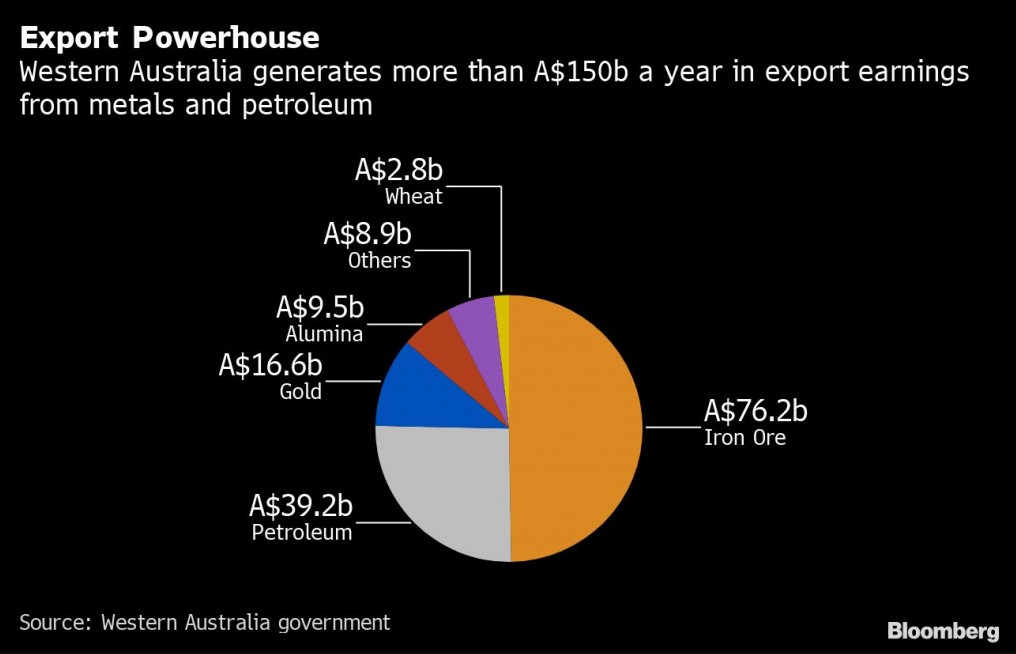Virus curbs force oil, mine workers to move across a continent
By David Stringer

Travel restrictions in Western Australia will cause disruption to output and lift operating costs, iron ore producer Mount Gibson Iron said. (Image courtesy of Mount Gibson Iron)
Some of the biggest mining and energy companies are scrambling to respond to tightening controls on movement inside Australia — the biggest exporter of iron ore and liquefied natural gas — by temporarily rehousing employees and their families thousands of miles from home.
“ABOUT 800 SO-CALLED FLY-IN FLY-OUT MINING WORKERS HAVE BEEN RELOCATED TO WESTERN AUSTRALIA FOR POTENTIALLY THE NEXT THREE MONTHS”
About 800 so-called fly-in fly-out, or FIFO, mining workers have been relocated to Western Australia for potentially the next three months, and around 300 to Queensland, along with scores of people staffing offshore oil and gas operations, according to the Australian Workers’ Union.
BHP Group, the world’s biggest miner, has relocated about 300 workers to Western Australia, including train drivers and tug boat pilots — some from as far away as the island state of Tasmania, about an eight-hour flight away.
It’s part of the multi-industry effort to ensure the nation’s giant iron ore mines, oil platforms and LNG projects have sufficient employees available to maintain output even as the country’s states enforce stricter controls over regional borders. It’ll also be crucial for China, as the top raw materials buyer powers up its economy, with manufacturing activity rebounding strongly in March.
Western Australia, a resources powerhouse that generates more than A$150 billion ($90 billion) a year in export earnings from metals and petroleum, plans to close its border by Monday, with only limited exemptions.
“We will be turning Western Australia into an island within an island,” Mark McGowan, the state’s premier, said Thursday. “Our isolation is now our best defense”

While FIFO workers and their families will be allowed entry, they’ll need to isolate for 14 days each time, meaning companies are acting to temporarily relocate their staff and minimize disruption over coming months.
Woodside Petroleum Ltd. will use “now-vacant hotels, motels and short-stay accommodation” for staff and their families from other states, the company said in a statement. Rio Tinto Group and Fortescue Metals Group Ltd., are also adjusting working patterns and asking staff to spend longer stretches at a time on site.
BHP said it will stop FIFO workers from entering townships close to mine sites, to help prevent the spread of the virus, and use only dedicated charter flights to transport staff into Queensland.
“The mining sector is a critical part of the state and national economy and we are committed to working with government and playing our part to help keep our industry operating safely,” Tim Day, BHP’s acting asset president for Western Australian Iron Ore, said in a Friday statement.
There’s a more difficult task for smaller companies to move workers around the country, while they’re also more exposed to the impact of workers falling ill with the virus, Warren Pearce, chief executive officer of the Association of Mining and Exploration Companies, said by phone. The combination of those factors could hamper some operations and “impede our ability to keep them at full production levels,” he said.
Travel restrictions in Western Australia will cause disruption to output and lift operating costs, iron ore producer Mount Gibson Iron Ltd. said in a March 30 filing.
Union leaders have struck agreements over additional allowances and pay rates for quarantine periods with energy operators including Modec Inc. and Inpex Corp, said Daniel Walton, national secretary of the Australian Workers’ Union. Inpex last month reported a worker tested positive for Covid-19 on a drilling rig off the Western Australia coast.
There are job security worries for other energy workers and as many as 2,000 mining FIFO workers who haven’t been able to relocate on family or personal grounds. “They are being paid right now, but we do have concerns about what will happen in the future,” Walton said.
Source: Mining dot Com

